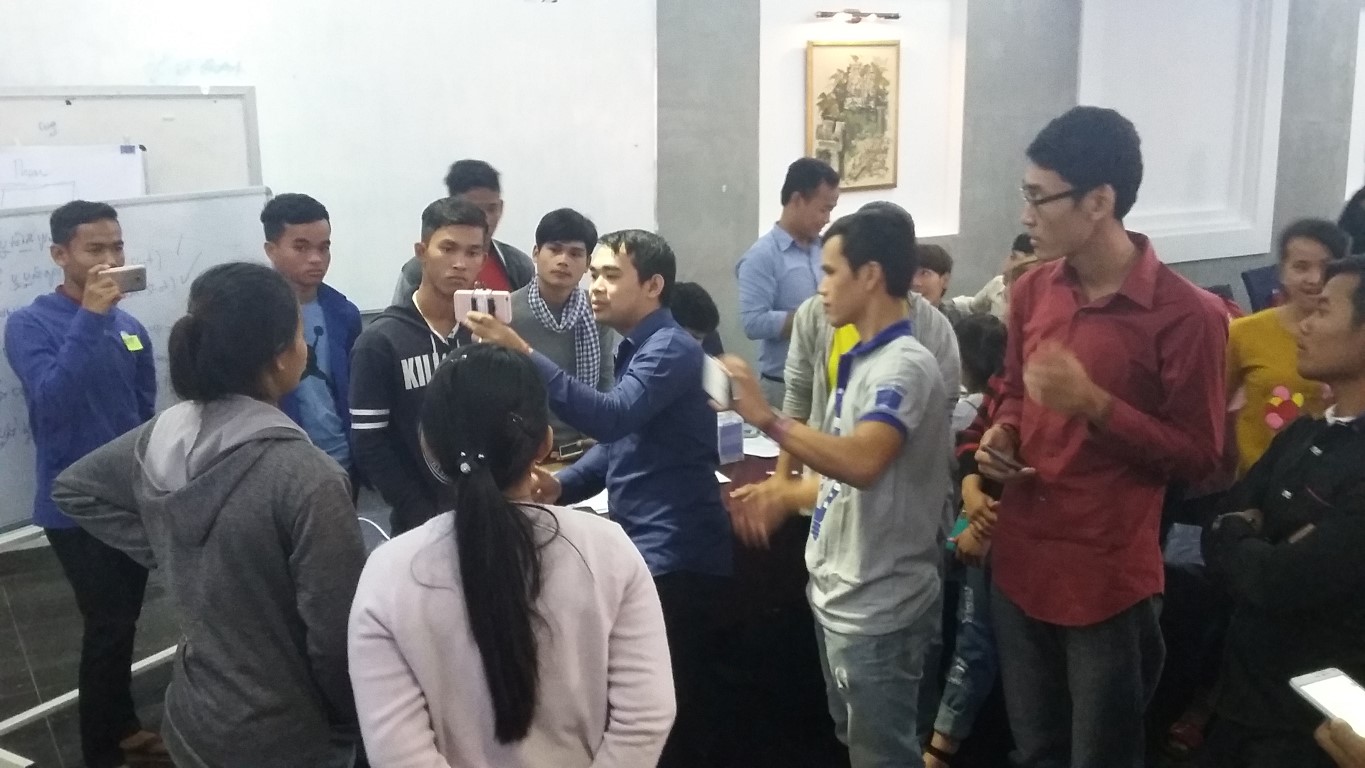With the cooperation between Cambodian Center for Independent Media (CCIM) and Denmark-based DanChurchAid (DCA), a three-day training course on citizen journalism has just been conducted from 4 to 6 November 2016.
Even though the rapid advancement of information technologies has encouraged citizens to play more constructive roles in information dissemination, the lack of professionalism in certain area, such as art of news writing, codes of ethics, photography skills and techniques for information, communication technology (ICT) security remains the critical challenge for citizen journalists to perform their jobs effectively.
To cope with this challenge, a training of citizen journalists is needed. Among the 25 participants selected from targets groups are high school and university students who are members of the Cambodian Youth Network (CYN), Equity Cambodia (EC) and representatives from communities affected by land disputes, deforestation and other forms of environmental degradation.
Having been convinced that everyone can be a citizen journalist, CCIM believes it is very crucial that Cambodian youths should be given more attention to, given their energy, educational background and strong enthusiasm for society participation.
Miss Rim Phat Bopha Phoung, a year-four student of International Relations at Khemarak University claimed that the training actually met her expectations in terms journalism skills. Bopha Phoung went on arguing that news writing and photography skills are very vital not only her, but also for other participants to develop a professional news report to contribute to the society, in which people are subject to the rights to get informed.
Similarly, Mr. Sev Bai, a community representative from Rattanakiri province, agreed that the training enabled him to understand the key steps in writing skills and techniques on how to protect his internet security whenever he accesses to social media, such as Facebook and Twitter. Bai is optimistic that the skills he got from the training will be extremely useful to protect his community and for its sustainability.
Even though the participants are young and have little experience in journalism, the training offered them a strong fundamental basis to sharpen their skills to be qualified as Citizen Journalists. According to Mr. Nop Vy, a media director at CCIM who was in charge of instruction at the training, the participants actively involved in the discussion and sharing of their knowledge with one another.
While CCIM reserves its rights to check and double check the news reported by citizen journalists to maintain quality and accuracy of the news, it is very important to make sure that citizen journalists are well-equipped by fundamental skills of journalism. By doing this, Citizen Journalists will be able to give the first-hand information of events with verifiable sources to inform the society. Based on this professional training, “we believe that one citizen can be a journalist and his/her small contribution will definitely result in big impact to the society in terms of the right to access to information and the promotion of freedom of press and expression,” Mr. Nop Vy said. (Sek Sophal)

